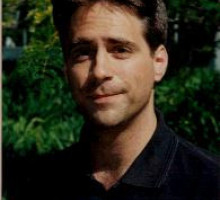
Reviews
By shifting the main focus from race to gender, from anti-Semitism to masculinity, Forth demonstrates just how deeply rooted in French culture the Dreyfus Affair was.
Forth provides an important contribution to the study of the scandal and to the broader cultural history of fin-de-siècle France by arguing that the divisive events of the Affair were framed by participants on both sides as a crisis in the French male body
Original and exciting... Forth uses the Dreyfus Affair as a means to explore not only the contingency of manhood but also the subtle ways in which gender norms are implicated in racist imagery, class boundaries, and the construction of the intellectual in fin-de-siècle France.
A nuanced and sophisticated analysis of French manhood.
Forth's analysis... lends important insight into the problematic ways in which this rhetoric has operated historically.
Innovative and articulate, this book will appeal to anyone interested in the Dreyfus Affair, masculinity, or medical discourses in fin-de-siecle France.
Erudite and interesting book.
A compelling portrait of a cultural crisis, and a book that should both interest the general reader and fascinate the area specialist.
A rich and provocative study of the Dreyfus affair and the crisis of fin-de-siècle masculinity... This is a valuable book because it presents the Dreyfusards from a new perspective and because it disrupts the teleology that has surrounded the Dreyfus affair.
Numerous writers have begun to write about the 'crisis of masculinity,' and even more scholars have studied the Dreyfus Affair, but few have combined the two. Forth has provided an imaginative and important book that contributes to our understanding of the cultural and intellectual history of the fin de siècle.
This fascinating book will make it impossible to think of the Dreyfus Affair as simply a battle of ideas, parties, and institutions. Forth shows how both Dreyfusard and Anti-Dreyfusard discourses were saturated with a gendered body imagery that privileged forceful masculinity over the presumptive effeminacy of Jews, anti-militarists, and disembodied 'intellectuals.' Dreyfusards may have won some tactical political battles, but they surrendered the linguistic field to their enemies.
Book Details
List of Illustrations
Acknowledgments
Introduction: The Body Politics of the Dreyfus Affair
Part I: Masculinity and the Jewish Question
1. Masculine Performances: Alfred Dreyfus and the Paradox of the
List of Illustrations
Acknowledgments
Introduction: The Body Politics of the Dreyfus Affair
Part I: Masculinity and the Jewish Question
1. Masculine Performances: Alfred Dreyfus and the Paradox of the Jewish Soldier
Part II: Dreyfusard Fantasies
2. Sanctifying Dreyfus: Intellectuals, Jews, and the Body of Christ
3. Educating the Will: Crowds, Contagion, and the Dreyfusard Body
4. Adventures of the Naked Truth: Women and the Dreyfusard Imagination
Part III: Remaking the Male Body
5. The Belly of Paris: Manhood, Obesity, and the Body of Zola
6. The New Man and the Culture of Force
Conclusion: An Affair to Remember
Notes
Selected Bibliography
Index






